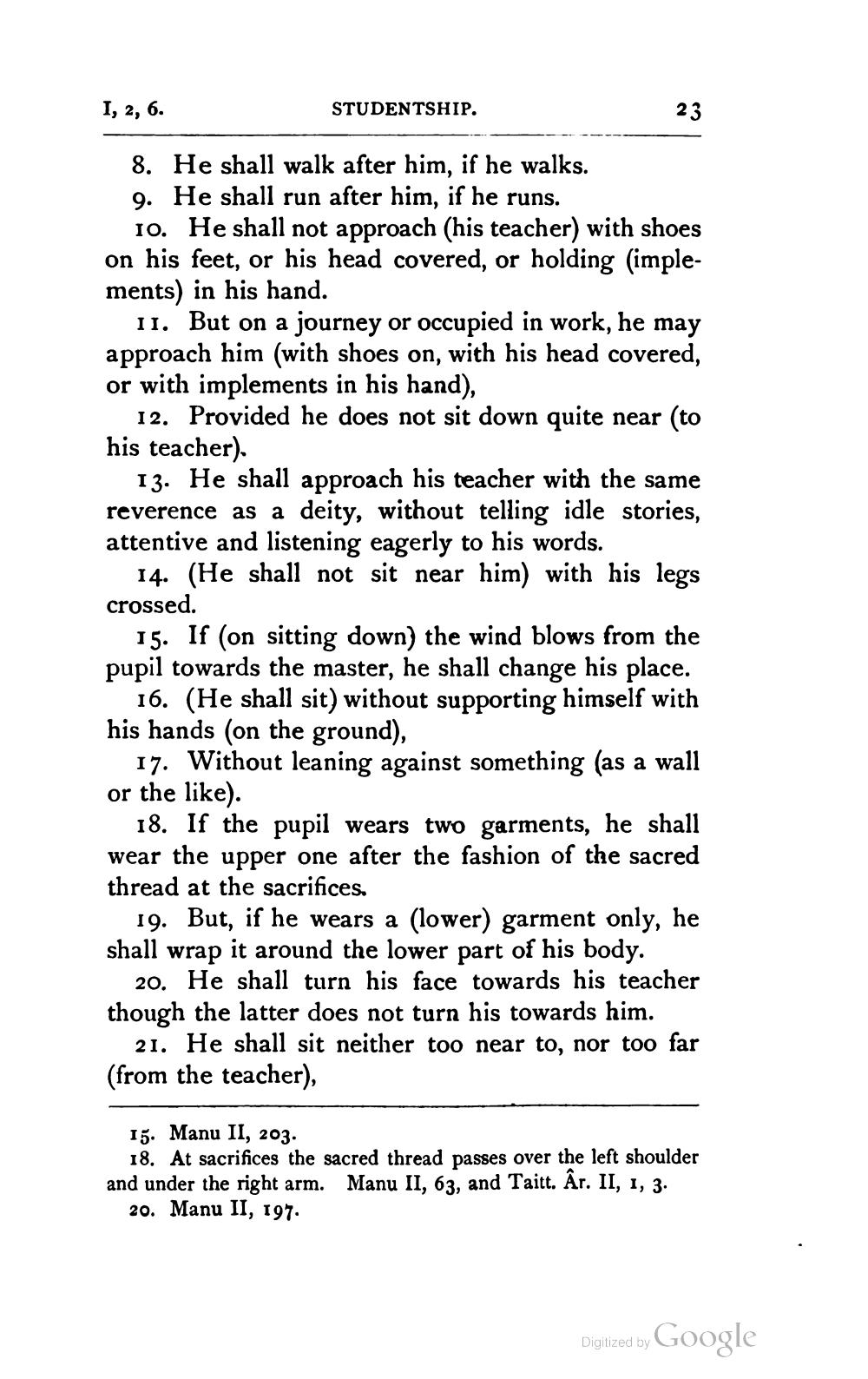________________
1, 2, 6.
STUDENTSHIP.
23
8. He shall walk after him, if he walks. 9. He shall run after him, if he runs.
10. He shall not approach (his teacher) with shoes on his feet, or his head covered, or holding (implements) in his hand.
11. But on a journey or occupied in work, he may approach him (with shoes on, with his head covered, or with implements in his hand),
12. Provided he does not sit down quite near (to his teacher).
13. He shall approach his teacher with the same reverence as a deity, without telling idle stories, attentive and listening eagerly to his words.
14. (He shall not sit near him) with his legs crossed.
15. If (on sitting down) the wind blows from the pupil towards the master, he shall change his place.
16. (He shall sit) without supporting himself with his hands (on the ground),
17. Without leaning against something (as a wall or the like).
18. If the pupil wears two garments, he shall wear the upper one after the fashion of the sacred thread at the sacrifices.
19. But, if he wears a (lower) garment only, he shall wrap it around the lower part of his body.
20. He shall turn his face towards his teacher though the latter does not turn his towards him.
21. He shall sit neither too near to, nor too far (from the teacher),
11:1.
15. Manu II, 203.
18. At sacrifices the sacred thread passes over the left shoulder and under the right arm. Manu II, 63, and Taitt. Ār. II, 1, 3.
20. Manu II, 197,
Digitized by Google




